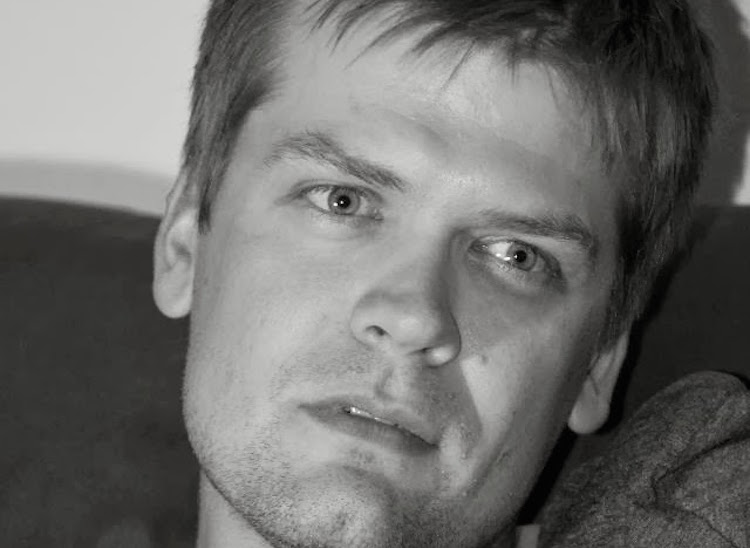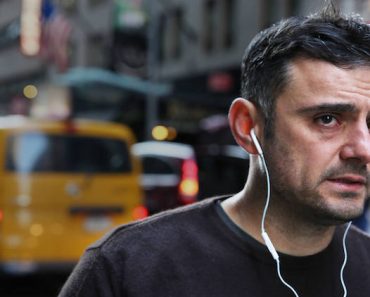David Cain is a writer and entrepreneur living in Winnipeg, Canada. In 2009, he started Raptitude, a sort of megaphone for his thoughts about the connection between human society and the internal, individual experience. After a meteoric rise in popularity, he was able to quit his day job to write full time.
Raptitude is, quite simply, a blog about improving your life as a human being. It expounds on a range of topics that are meant to help people become better people, looking at skills that aren’t exactly taught in school, including letting go of the past, managing moods, quitting bad habits, and enjoying the everyday moments of life.
How did you come up with the name, Raptitude, and what do you hope that it suggests to people?
When I first started my blog I knew I wanted to have a short name, which would probably be a made-up word. Raptitude is a half-joking combination of the words “rapt” and “aptitude”. It’s meant to imply that the quality of our experience in life depends on certain skillsets that we’re seldom explicitly taught – how to respond to a bad mood, how to manage envy and jealousy, how to know what pursuits are worthwhile and which are a waste of time.
I’ve broadened the topic of the blog since I chose the name, but that’s what I had in mind when I started. I barely think about the meaning of the word anymore, it’s really just a domain name.
What has been the best part of starting Raptitude for you?
I guess Raptitude was the first hobby I got into that really felt like my thing. As soon as I had a few posts up and I was getting some visitors, I knew it’s what I wanted to do, and blogging quickly became central to my life.
We fall so easily into jobs and roles that don’t reflect our values, but Raptitude has given me a chance to do work that I do think is genuinely important. There’s no longer any feeling that I should be doing something else with my life, a feeling I had for my whole adult life until I started writing.
What was your process like in creating Camp Calm, and how has season two built upon what you learned in facilitating the initial session?
Initially the idea was to find a way to make my previous releases, You Are Here and Making Things Clear, more effective for the people who read them. There was great feedback on both of those books, but after you read them there’s not much to support you in making meditation and mindfulness into real-life habits.
That’s one of the curses of traditional self-help and self-improvement material — you read something, get high on the possibilities, and feel like you’re changing something as you read it. But to make it real in your life, you have to change your daily behavior for a good while, three or four weeks at least. Most people just aren’t going to make the necessary behavioral changes without someone telling them what to do every day.
So Camp Calm was born from that, and it really seems to be working. By the end of the course people have learned a lot, and they know how to maintain a meditation practice in their lives if they want to. Just reading the books leaves too much decision making and doubt in the picture for someone who’s never meditated before.
Season One was a big hit so I didn’t change all that much for Season Two. But I did add a discussion forum, which has added a lot, not just for the Campers but for me. It’s giving me a clearer picture of what people actually experience when they first explore meditation – where they get hung up, what’s confusing to them. I’ll be using a lot of what I learned in forum discussions to make Season Three better.
Why do many people find it difficult to meditate, and what helps people become more comfortable with meditating?
I think there are a few things people get hung up on.
The first thing is a fundamental misconception of what meditation, at least basic breath meditation, is supposed to be like. We’re told that we’re supposed to observe the breath, and when we notice we’re lost in thought, we return our attention to the breath. But I think most people get into it with the idea that getting lost in thought is a rookie mistake that we’ll soon grow out of, akin to falling off your bike when you’re learning to ride it. We expect that after the initial few weeks, we’ll get the hang of it and stop falling off, and that’s when we’re really meditating.
But it’s really not like that – when we first sit down to meditate, we lose track of the breath in seconds, and that will happen again and again and again for years. Getting lost and coming back is the practice. That’s the form it takes. I don’t think this is well-known among beginners though – most of them seem to think getting lost at all means they’re failing at meditation. So it gets frustrating and they quit because they think it’s “not for me”.
The second thing is doubt. Because meditation is an internal activity, we can’t have someone review our “form” the way we could with, say, athletic skills. So we have no idea whether we’re doing it right, at least until we start to see some unambiguous results. And it is certainly possible to do it wrong. When you’re coming to the cushion day after day, not knowing if you’re getting anywhere or even doing it right, it’s easy to say screw it and skip the practice. If you skip a few sessions, then you don’t really have a daily practice.
What beginners need is reassurance that they’re not wasting their time, and someone who can answer their questions about what to expect and what to do when they run into certain problems.
The third thing is that meditation is unlike anything else we do. We’re working against gravity in a way – our whole lives, we’ve become used to turning away from things that are uncomfortable and uncertain.
In meditation, it is essential that we learn to open up to certain experiences that we have always turned away from. It’s a big adjustment. It’s incredibly rewarding to learn to do that, but in a sense it is so much the opposite way we normally engage with the moment, that a lot of people are going to squirm away from meditation too, before they start to see why it’s so valuable.
For all of these hindrances, I think what beginners need is reassurance and clearly-worded instructions. For all the wonderful contributions Buddhism has made to meditation, it is still a conservative religious institution and tends to intimidate beginners, which is really the last thing they need when they’re trying something so new and different as meditation.
How do you continue to find rich and engaging topics to write about every week?
Well my topic is pretty broad – human life – so my own life provides more ideas than I could ever write about. The difficulty for me is finding a way to write about them that’s pleasant to read, not too long, and worth sharing with others. I have ideas I’ve wanted to write about for years but I don’t think I’m a good enough writer to tackle them yet.
But yeah, life itself provides more ideas than I could ever use. There are philosophical questions behind everything. Recently I was at the grocery store picking Brussels sprouts. When I noticed I was taking all the good-quality ones and leaving the others, I started to wonder if maybe that’s an unfair thing to do. It got me thinking about everyday morality, and what we think is fair and unfair about the way we live, and it turned into a blog post. Life gives me a dozen of those moments a day, and if I have a way of conveying that experience, a relatable starting point, then I will.







